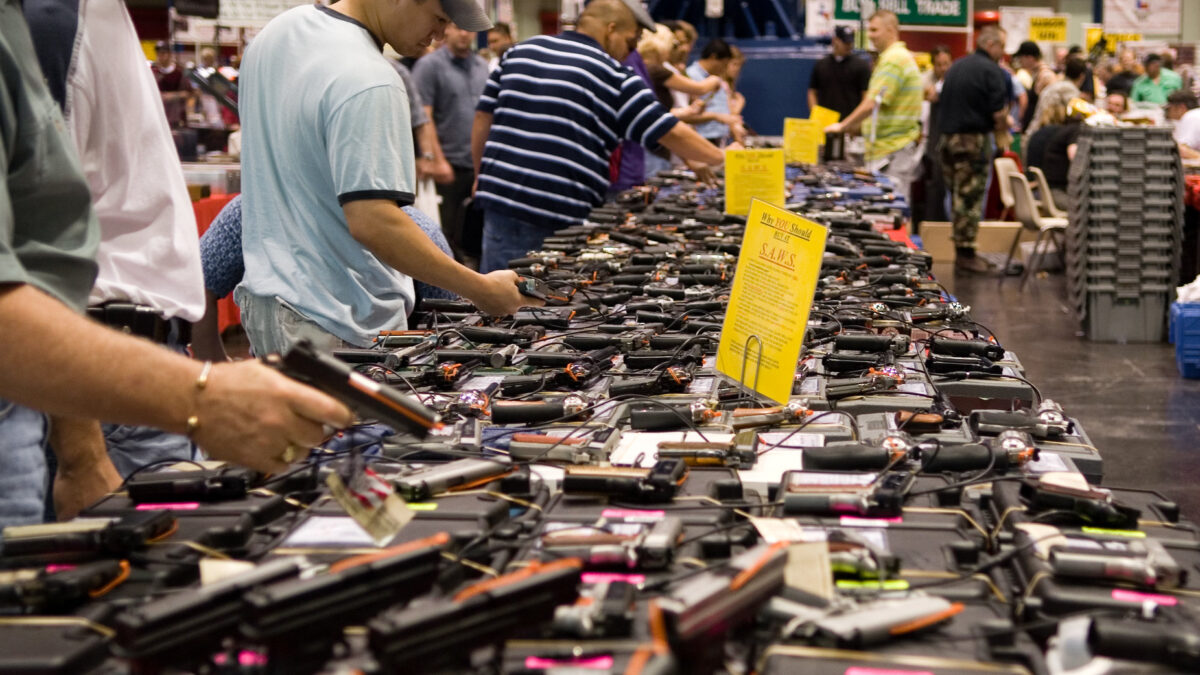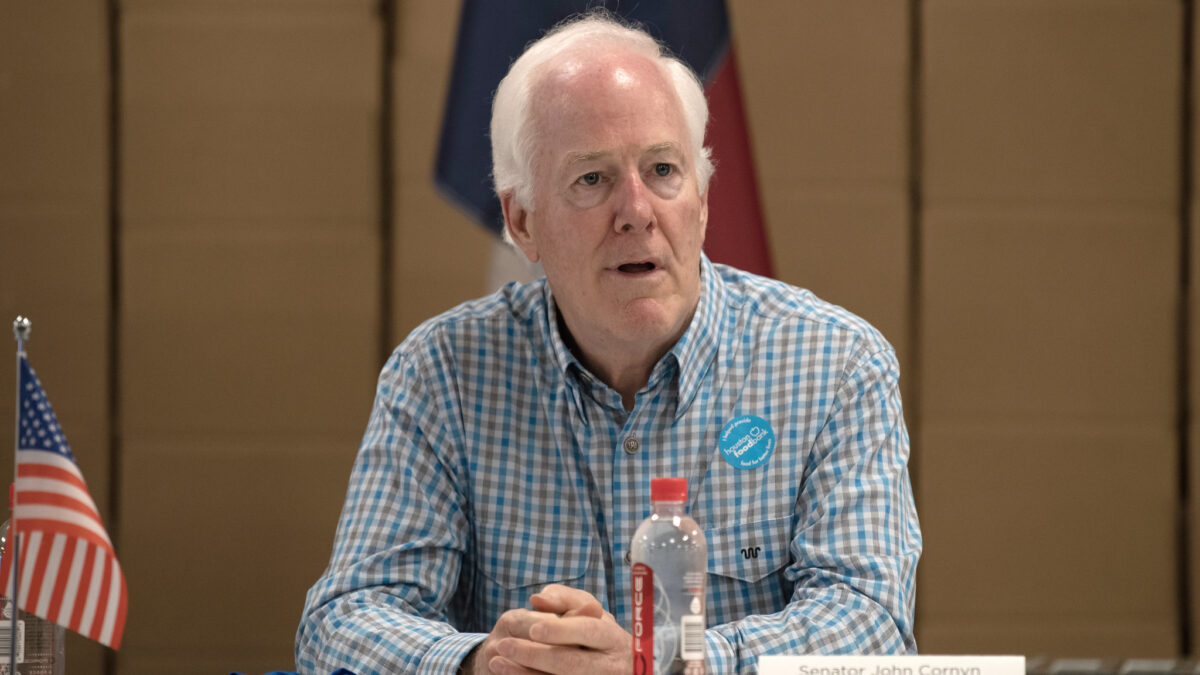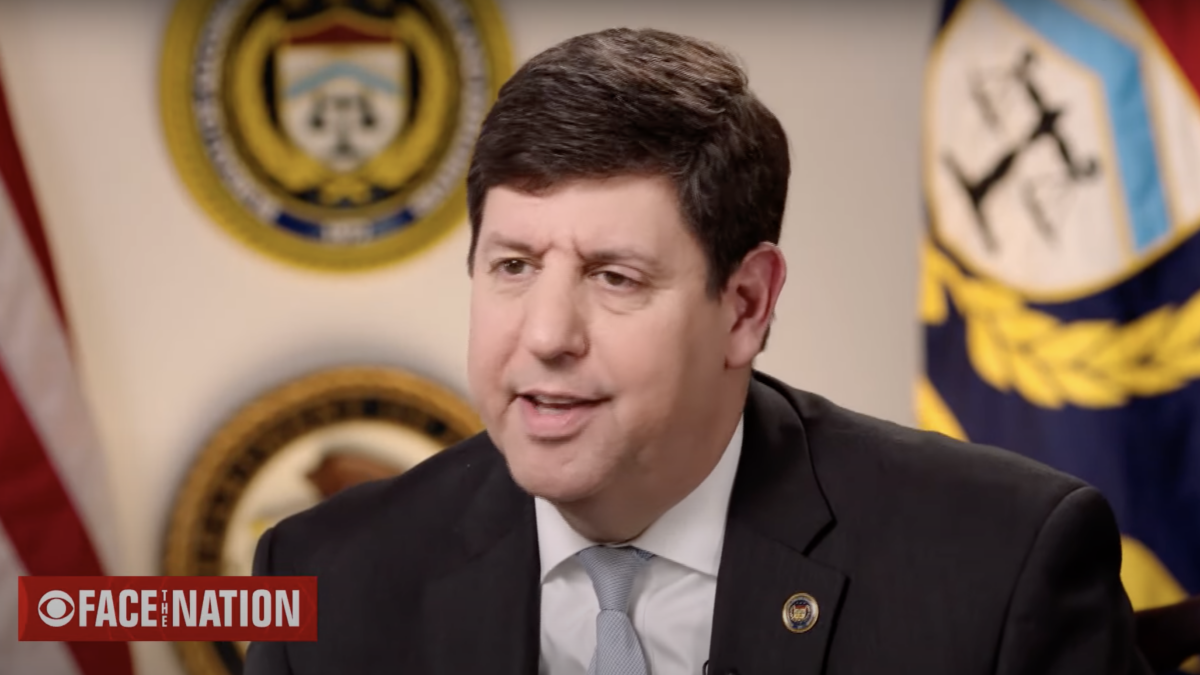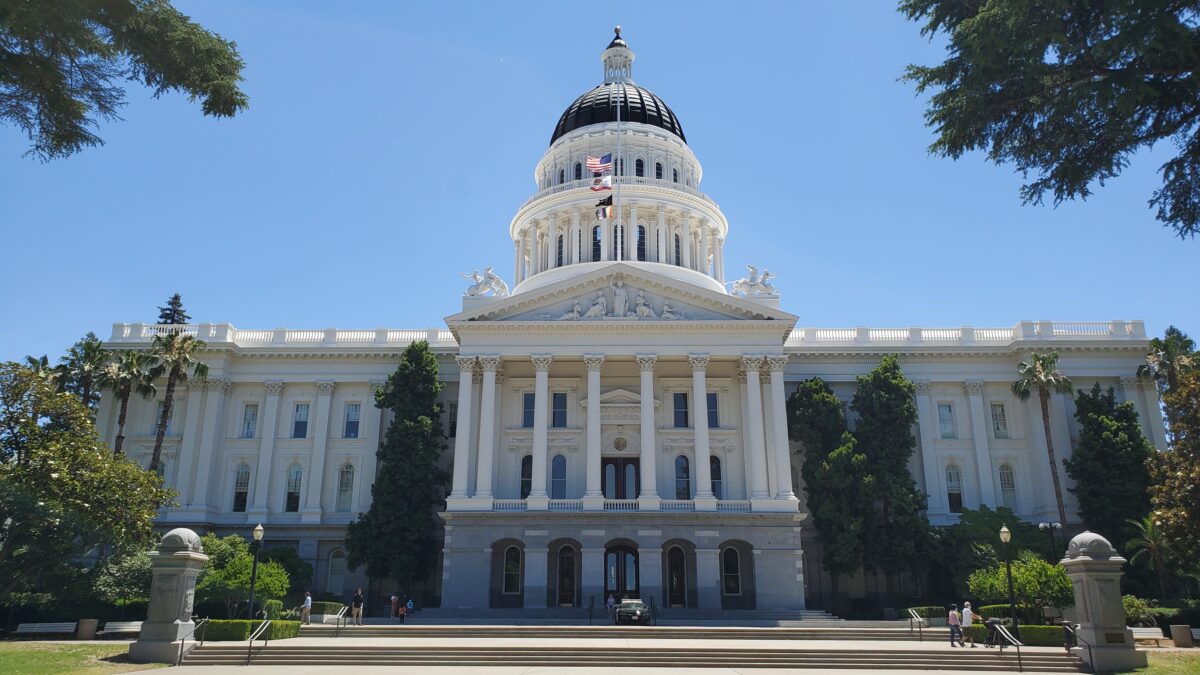
I’m not one to make light of mass shootings, and I shouldn’t have to say that I deplore violence. But that’s undoubtedly the charge that will be hurled at me when I say that I can’t stand the latest PSA from Everytown for Gun Safety.
Stop me if you’ve heard this before — some advocacy group rounds up a bunch of celebrities and does a quick-cut video of them all repeating the same mantra. In this case, it’s “WE. CAN. END. GUN. VIOLENCE.” Now forget for a moment the utter hypocrisy of Hollywood-types who make their living glorifying violence having a convenient attack of conscience. Even if it is utterly sincere, at this point my tolerance for this clichéd and futile dreck is such that I recommend having an airsickness bag handy before you watch this:
Okay, now that you’ve been subjected to that (I’m sorry), as a palate cleanser you should go ahead and watch this pitch perfect “Portlandia” parody and note how closely it tracks with the Everytown PSA. Finally, repeat after me: Stop trying to make ending gun violence happen. It’s not going to happen.
Willing To Listen
For the record, I am fairly confident that given their druthers, Everytown for Gun Safety would implement ideas about restricting gun ownership that are unconstitutional and would abridge rights clearly spelled out by the Second Amendment. But just because I think they’re wrong about guns — and even suspect of their motives — that doesn’t mean I’m unwilling to listen to gun control advocates and try to find compromise. After all, I think there are some issues around the margins that could be fruitful places to begin a discussion, such as better enforcement of existing gun laws, or areas related to mental health and gun ownership.
But I can’t even begin to have a discussion with anyone who is committed to expressing end goals with this slouching-toward-utopia rhetorical horsecrap. If you told me that the comms department of every liberal nonprofit consisted of a bunch of people in Birkenstocks rearranging the refrigerator poetry magnet set in the breakroom until they stumbled on something sufficiently vapid, I’d say, “sounds right.”
From a practical standpoint, we’re not ending gun violence. As long as we have guns, we’re going to have gun violence. It always astounds me that most liberals (correctly) understand that enforcing prohibitions against something as common as, say, marijuana results in untold horrors perpetrated by the state on the undeserving and innocent. Yet, somehow this same logic doesn’t apply to the fact we’re stuck with 350 million guns. Getting rid of this many guns is about as close to a literal political impossibility as there is.
While you can sputter “But Australia!” all you want, America is a very large and culturally complicated country. Even the easy five-point plan for ridding America of guns involves going door-to-door invading homes. This would, ironically, probably set off 1,000 Ruby Ridges, if not spark an all out civil war. Never mind that even if you take someone’s guns, you can now download plans off of the Internet and 3-D print them, to say nothing of how quickly an efficient black market for guns would ramp up in an era of globalization.
And from a philosophical standpoint, we’re not ending gun violence. People have been killing other people since Cain, and as much as you might revel in the label “progressive,” the only real historical progress here is defined by the increased efficiency with which we’re able to kill each other. Proclaiming that gun violence is on the wrong side of history is frankly nonsensical when you realize that human nature is a constant.
In historical terms, we’re extremely fortunate that economic and technological factors have ameliorated the West’s capacity for death dealing in the last 50 years. But in a world where ISIS is on the march, if you think that the right YouTube video can make us all join hands and actualize some cheap I’d-Like-To-Buy-The-World-A-Coke optimism about agreeing to not kill each other, you’re delusional. Do us all a favor and shut up.
The Language Of What’s Possible
As of late, this Pollyannaish attitude is amped up more than usual because it’s been paired with angry self-righteousness over the fact that evil Rethuglicans are skeptical of banning guns. I wish that were hyperbole, but it isn’t. “It’s Time to Ban Guns. Yes, All of Them” is but one recent headline at a very well known liberal publication.
We spend a lot of time wringing our hands over how liberals and conservatives speak past each other on issues, making it hard to find common ground. Certainly conservatives commit their own rhetorical sins, and liberals are not shy about pointing them out. In turn, I would urge liberals, if they want to actually persuade conservatives, to speak the language of what’s possible. And that means not pretending you can end violence, inequality, poverty, racism, and any other tragic aspect of the human condition. Accepting the notion that we’re all personally and incurably flawed makes it harder to demonize the opposition and, I humbly submit, perhaps more inclined to look within ourselves to find solutions.
Instead, I worry that this kind of sloganeering isn’t actually designed to persuade. Rather something as practically absurd as “We Can End Gun Violence” bridges the rhetorical divide between a zen koan and a giant strawman. By mindlessly adopting an impossible standard, it will only harden the resolve of frustrated liberals when the next horrible event once again makes it evident we can’t will ourselves to transcend our violent nature.
Of course, there are tangible things that can be done to prevent some violence, even if it can’t ever be completely eliminated. We can all agree we can and should do more to stop it. But it’s hard to concoct an effective, let alone agreeable, plan to address violence without acknowledging on some level it’s an inescapable fact of life. Too often, the liberal response to rejecting its utopian premises is to claim that describing the world as it is amounts to cynicism. Then again, some cynicism may even be healthy — this Kumbaya claptrap actually warrants it.









